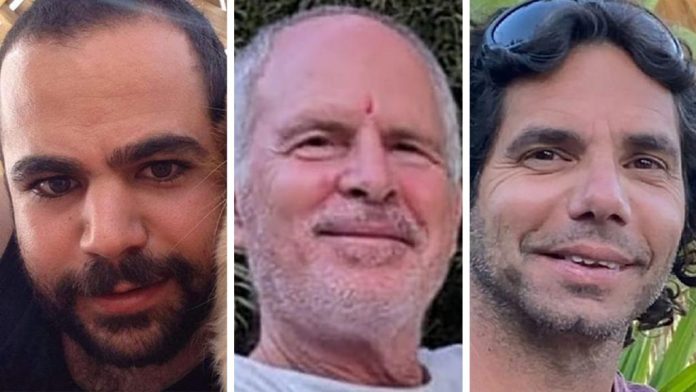Palestinians gathered at the Rafah border crossing as Hamas transferred three more Israeli hostages to Israel under the ceasefire agreement. Meanwhile, dozens of sick and injured Palestinians, including wounded Hamas members, prepared to cross into Egypt for medical treatment.
Hamas handed over the first two hostages to the Red Cross in southern Gaza on Saturday morning. The Israeli military received them shortly after.
The reopening of the Rafah crossing marked a key step in the first phase of the ceasefire. Israel had controlled the area for months, keeping the crossing closed. On Saturday, buses transported sick and injured individuals from Gaza hospitals, including children needing treatment in Egypt.
Hostage and prisoner exchanges under the ceasefire
Later, Israeli authorities freed 183 Palestinian detainees. Some left in handcuffs, wearing wristbands with an Israeli flag and the phrase “Eternity does not forget.” Large crowds in Ramallah celebrated as the first Red Cross buses arrived.
Among the released Israeli hostages was 35-year-old Yarden Bibas. His wife and children remain missing, raising serious concerns. Also freed was 54-year-old French-Israeli Ofer Kalderon. Unlike a previous chaotic exchange, this handover followed a structured process. The two men briefly appeared on a stage with a Hamas backdrop. Kalderon held a “decision of release” certificate from Hamas.
Later in the day, Hamas also released 65-year-old American-Israeli Keith Siegel at Gaza City’s port. Hamas had abducted all three men during its attack on Israel on 7 October 2023. That attack triggered the ongoing conflict.
The truce, which began on 19 January, halted hostilities and increased humanitarian aid to Gaza. It remains the deadliest conflict between Israel and Hamas.
Rafah crossing reopens for medical evacuations
On Saturday, Palestinians crossed from Gaza into Egypt through the newly reopened Rafah crossing. The first group included 50 wounded militants and 50 injured civilians, along with their escorts. Officials also planned to allow an additional 100 people, mostly students, to travel on humanitarian grounds.
Before its closure in May, Rafah served as the main exit point for Palestinians. On Friday, the European Union sent a civilian mission to assist with the reopening. Restoring crossings is a key part of the ceasefire’s first phase. This phase includes:
- The release of 33 hostages in exchange for nearly 2,000 Palestinian prisoners
- The return of displaced Palestinians to northern Gaza
- Increased humanitarian aid
So far, Hamas has released 17 of the 33 hostages. In return, Israel has freed 400 Palestinian prisoners. Negotiations for a second phase will begin on Tuesday. This phase could involve releasing more than 60 remaining hostages and withdrawing Israeli troops from Gaza.
Uncertainty over future ceasefire negotiations
Yarden Bibas’s release without his family has caused distress among Israelis and international supporters. A widely shared video showed his wife, Shiri Bibas, clutching their two young children as Hamas gunmen took them from Nir Oz kibbutz on 7 October. Her youngest son, Kfir, was just nine months old at the time.
Earlier this week, Israel asked Hamas to clarify the fate of Shiri Bibas and her children. Hamas had shared numbers—but no names—on the status of the 33 hostages in this phase of the ceasefire. Officials believe Yarden Bibas was held separately from his family. Photos from his abduction suggest he suffered injuries.
Hamas also captured Ofer Kalderon from Nir Oz. His two children and ex-wife, Hadas, were later released during a previous ceasefire in 2023. Keith Siegel was kidnapped from Kibbutz Kfar Aza alongside his wife, Aviva Siegel. She was freed last year and has since led a public campaign for his release and that of other hostages.
Talks expected to determine next steps
Israel and Hamas will begin new negotiations next week for the second phase of the ceasefire. The discussions will focus on securing the release of remaining hostages and potentially extending the truce. If no agreement is reached, fighting may resume in early March.
Israeli leaders insist they remain committed to dismantling Hamas, even during the ceasefire. Meanwhile, a far-right faction in Prime Minister Benjamin Netanyahu’s coalition is pushing for an immediate return to war. Hamas, however, refuses to release more hostages unless Israel ends the war and withdraws from Gaza completely.
